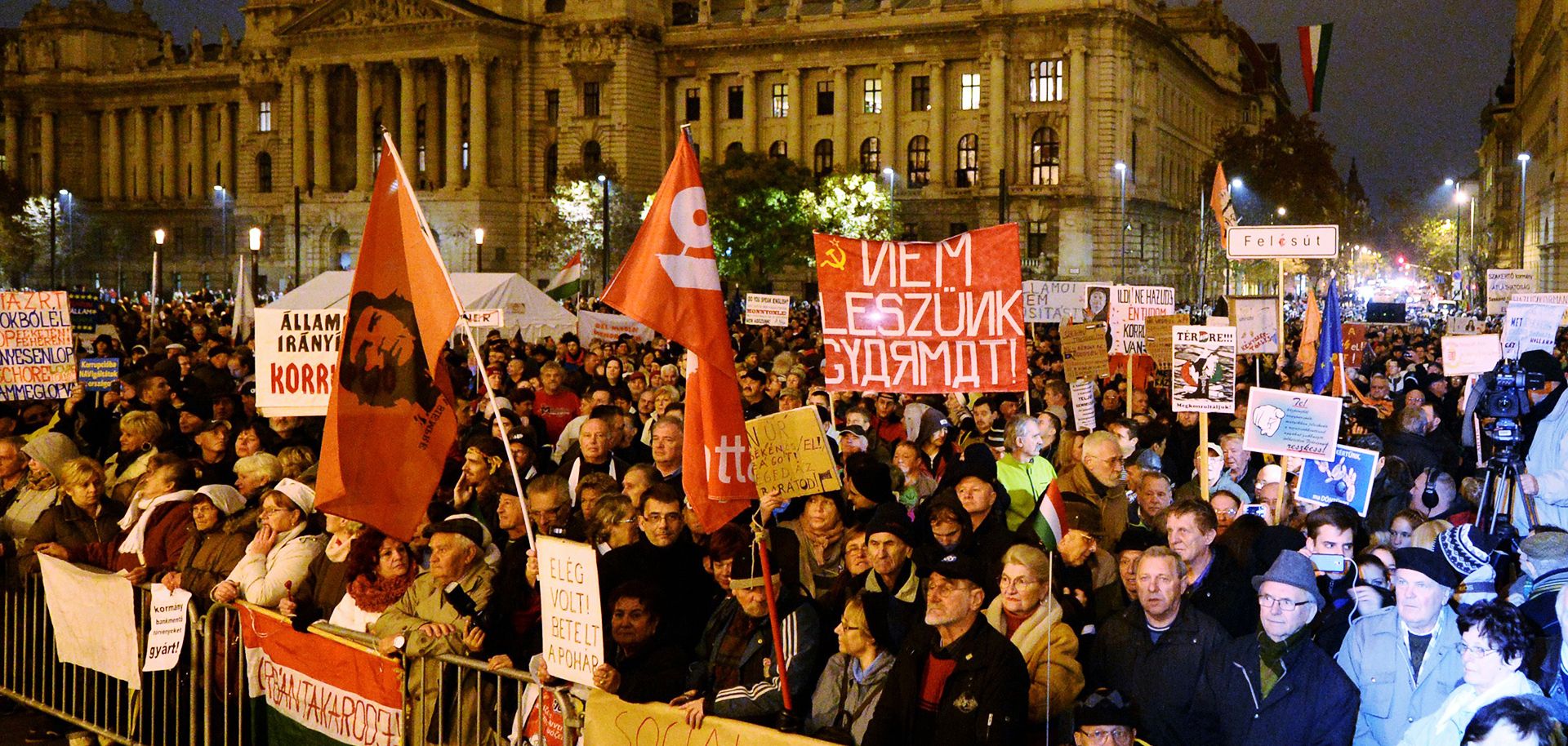ASSESSMENTS
In Central Europe, Governments Are Caught in the Middle
Nov 25, 2014 | 10:00 GMT

(ATTILA KISBENEDEK/AFP/Getty Images)
Summary
Throughout late October and the first weeks of November, street protests took place in Budapest, Prague and Bratislava, as well as in smaller cities and towns across Central Europe. The demonstrations had different goals, most of them related to domestic political concerns such as government corruption. However, protesters throughout Central Europe have also publicly raised concerns regarding the perceived pro-Russia foreign policy orientation of their governments. As the Ukraine crisis continues, the region is struggling to balance its ties to the West with its economic and political relations with Moscow. To maintain this balance, some governments have vocally opposed EU-sponsored sanctions on Russia and are continuing to cooperate with Moscow on a range of projects.
The Hungarian, Czech and Slovak government positions toward the Kremlin vary because of the differing levels of energy dependence and commercial ties with Russia among these countries. Nonetheless, recent tension in Central Europe will contribute to more domestic unrest and likely make it difficult for regional governments to effectively maintain ties with both the European Union and Russia.
Subscribe Now
SubscribeAlready have an account?
